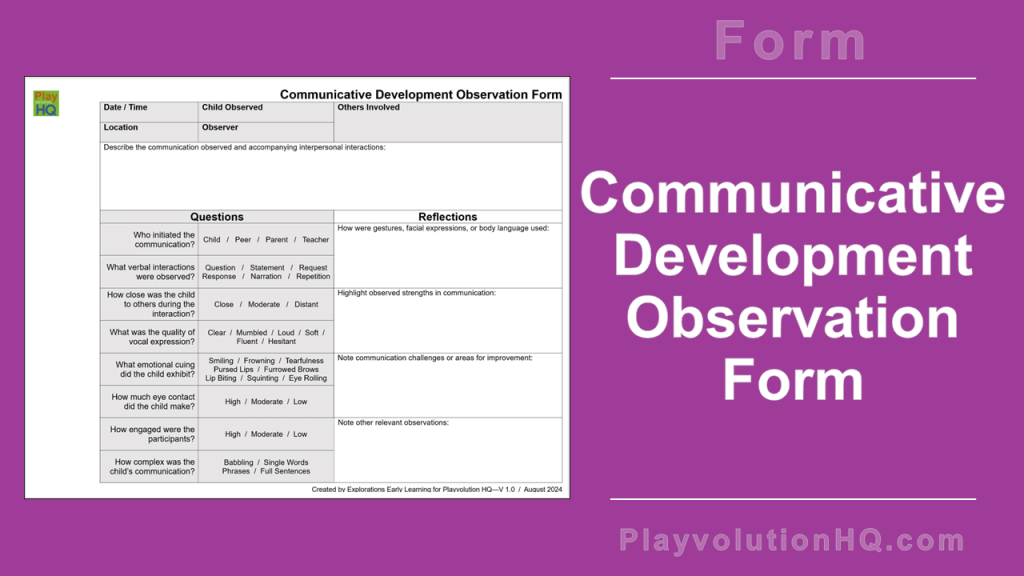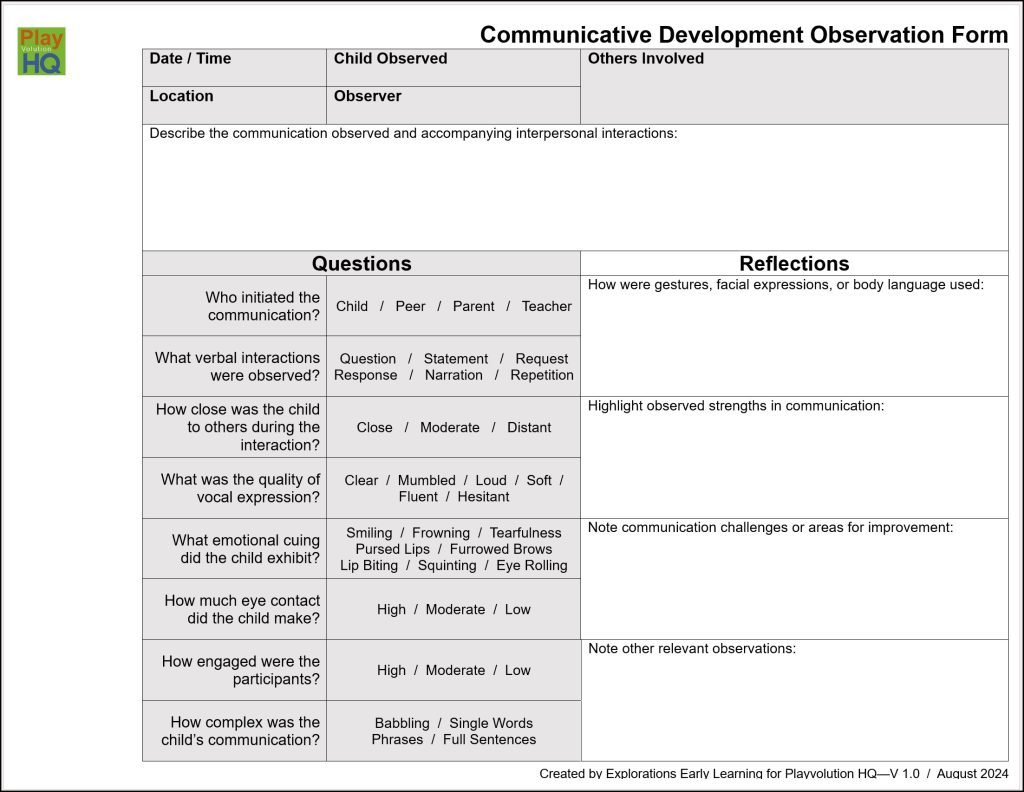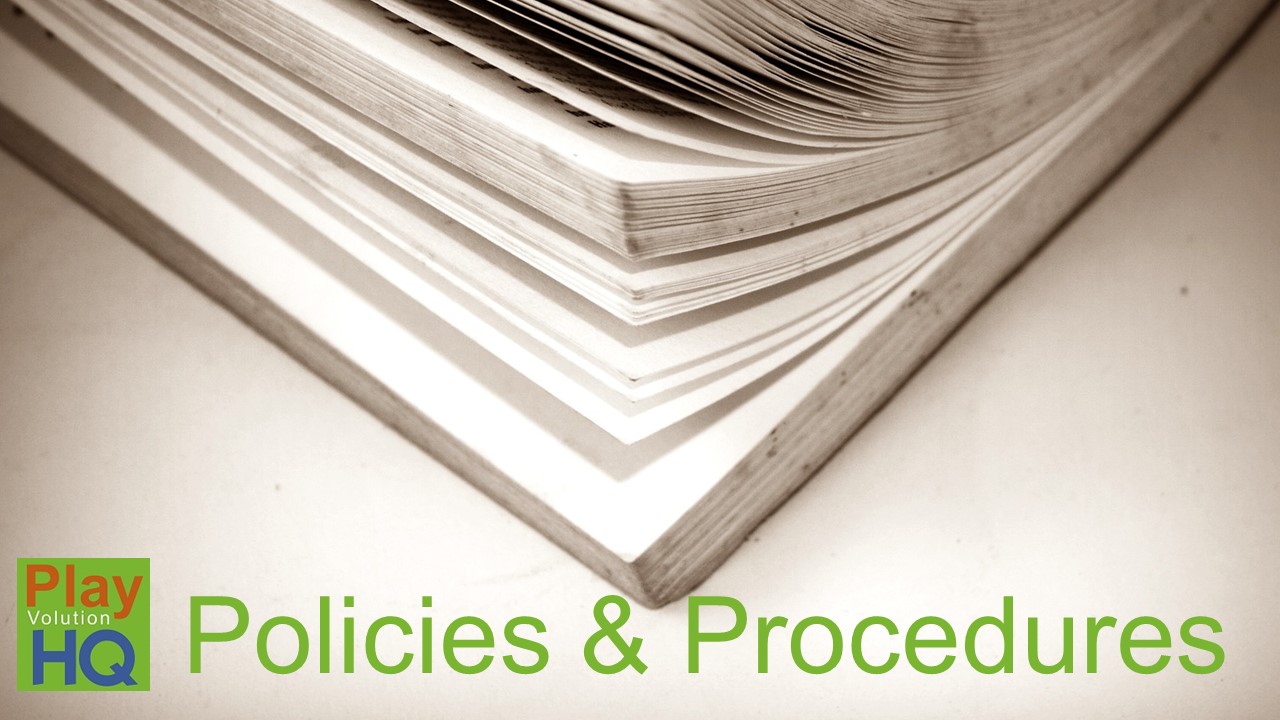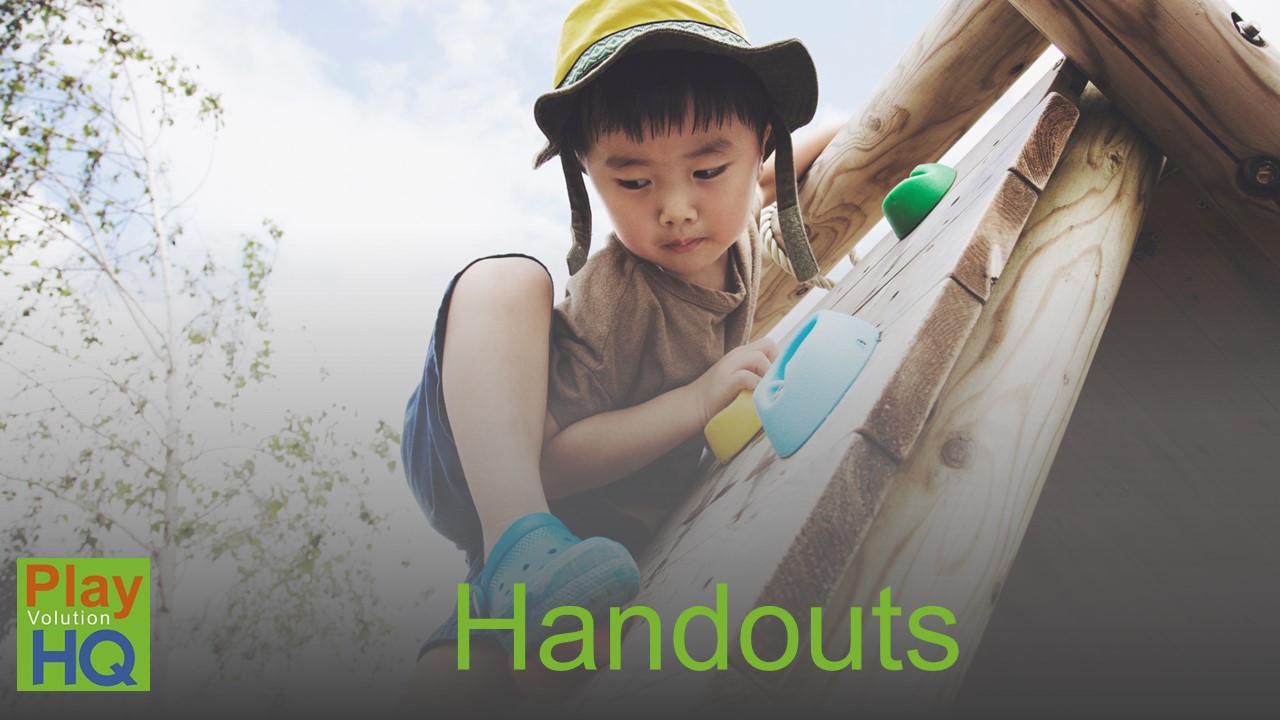Revised | Originally Published: January 15, 2024 @ 9:52 am

Table of Contents
Overview
This communicative development observation form is intended to help early learning professionals grab a snapshot of an individual child’s communicative skills. The form is intended to record a child’s verbal communication skills as well as their non-verbal skills, so it can be used successfully in observing pre-verbal children.
In addition to capturing a snapshot of a child’s current communicative skills, the form can also help identify developmental concerns.
Completing The Communicative Development Observation Form
Here’s a quick look at how to use this interruption observation form:
Top Matter
Complete the top matter before starting the observation:
- Date/Time–Date of the observation
- Location–Where the communicative interation took place
- Child Observed–Name of the child observed
- Observer–Name of the observer
- Others Involved–The people with which the observed child communicated
Description
Breifly describe the communicative interaction you are observing with as much detail as possible. This could range from an infant’s mostly non-verbal interaction with a caregiver during a diaper change to a heated conversation in the dramatic play area between a veterinarian, Batman, and a woodland princess with an injured pet field mouse.
Attempt to capture direct quotes, tone, expressions, and other observations with as little bias and judgement as possible.
Questions
In this section, simply select applicable responses to the eight questions.

Reflections
In this section, respond to the four prompts with reflections on what you observed.
Free PDF
Here’s the blank PDF for your downloading and printing pleasure:
Wrap-Up
Completing a communicative development observation form for a child every couple months over their first 4 or 5 years would really document their progress over time. This form may also come in handy when trying to suss out the root causes of behavior problems or interpersonal conflicts among children.
Finding time for observation in the course of the day can be challenging with so many other demands on your attention, but it’s worth the effort when you can make it happen.
More posts related to early learning program operations at the links:


Contribute content to Playvolution HQ
Brought to you by Explorations Early Learning
Post Author
Jeff Johnson is an early learning trainer, podcaster, and author who founded Explorations Early Learning, Playvolution HQ, and Play Haven.

Leave a Reply